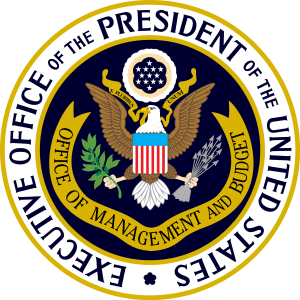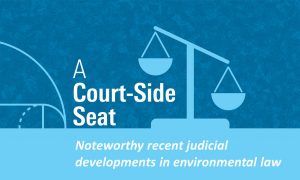 On March 2, 2020, the Environmental Protection Agency revised its “On-Site Civil Inspection Procedures” in accordance with Executive Order 13892 . (The rules are located at 40 CFR Part 31.) These rules set forth the components of an appropriate inspection procedure. Briefly, the rules require that, after the inspector’s credential are made available, the object of the inspection will be discussed (and most inspections will be held during regular working hours), consent to enter must be obtained, there should be an opening and a closing conference with facility representatives, safety protocols must be observed, confidential business information must be protected, and there will be an opportunity for split sampling. Once the report is completed, it will be shared with the facility.
On March 2, 2020, the Environmental Protection Agency revised its “On-Site Civil Inspection Procedures” in accordance with Executive Order 13892 . (The rules are located at 40 CFR Part 31.) These rules set forth the components of an appropriate inspection procedure. Briefly, the rules require that, after the inspector’s credential are made available, the object of the inspection will be discussed (and most inspections will be held during regular working hours), consent to enter must be obtained, there should be an opening and a closing conference with facility representatives, safety protocols must be observed, confidential business information must be protected, and there will be an opportunity for split sampling. Once the report is completed, it will be shared with the facility.
Mezzanine Loans Behind Construction Loans—Special Considerations and Intercreditor Agreement Provisions
An intercreditor agreement (ICA) involving a construction loan raises a host of complicated and unique issues that are not addressed in the typical ICA. As more fully described in the prior alert on Intercreditor Agreements (ICAs), and by way of a short introduction to mezzanine loans generally, the mezzanine lender in a single mezzanine loan structure makes a mezzanine loan to the mortgage borrower’s owner(s) (the “mezzanine borrower”) and the mezzanine loan is secured by the mezzanine borrower’s equity interest in the mortgage borrower (a single purpose entity that is not the property owner entity). In “Distressed Real Estate During COVID-19: Mezzanine Loans Behind Construction Loans—Special Considerations and Intercreditor Agreement Provisions”, colleagues Caroline A. Harcourt and Paul Shapses discuss that construction loans with companion mezzanine loans raise a host of concerns that are unique to more standard ICAs between a mortgage lender and a mezzanine lender.
Join Us 11.12 for an Energy Transition Virtual Fireside Chat with Paul Browning
Pillsbury partner and Global Co-Head of the Energy & Infrastructure Projects team, Mona Dajani, talks #ChangeInPower with Paul Browning, President and CEO of Mitsubishi Power Americas.
Join us on November 12, 2020, for a 45-minute conversation, where Mona and Paul discuss the power sector’s role in the energy transition, the growing prominence of hydrogen and energy storage, collaborating with customers and stakeholders and setting a path toward a decarbonization of the power grid.
To attend this exclusive fireside chat, register here.
A Court-Side Seat: Butterflies, Salt Marshes and Methane All Around
Our latest summary of some recent developments in the courts and the federal agencies includes a unique case involving salt marshes adjacent to San Francisco Bay.
The Role of Intercreditor Agreements between Mortgage Lenders and Mezzanine Lenders
Mortgage lenders and mezzanine lenders considering amendments to loan documents, forbearance, loan transfers, the exercise of remedies or deeds in lieu of foreclosure, and other loan-related fact patterns will need to revisit and comply with the provisions of their respective ICAs. In “Distressed Real Estate During COVID-19: The Role of Intercreditor Agreements between Mortgage Lenders and Mezzanine Lenders“, colleague Caroline A. Harcourt discusses how the current distressed real estate environment will put many of these arrangements to the test.
Real Estate Trends: Looking Ahead to 2021
2020 has been an unprecedented year, and, while there are likely more twists and turns to come before December 31, it is essential to look at how the real estate markets have changed this year and which trends are likely to continue into 2021. The COVID-19 pandemic has impacted nearly every industry, including commercial real estate, and its impact will continue to influence the market and commercial real estate long after the virus has been eradicated.
A Court-Side Seat: A FACA Fight, a Carbon Pledge and Some Venue on the SCOTUS Menu
In this summary of recent developments in environmental and regulatory law, venues are challenged, standing is upheld, statutory exemption is disputed and more.
THE U.S. SUPREME COURT
Change Must Come from Within … Maryland?
As the new term begins, the Court has agreed to review BP PLC v. Mayor and City Council of Maryland, a decision of the U.S. Court of Appeals for the Fourth Circuit which held that a climate change damages case filed against many energy companies must be heard in the state courts of Maryland and not the federal courts. The petitioners argue that the federal office removal statute authorizes such removal, and the Fourth Circuit’s contrary decision conflicts with rulings from other circuit courts.
The Energy Transition & Hydrogen
 In episode 18 of Industry Insights podcast, host Joel Simon and Elina Teplinsky discuss the financial community’s response to the energy transition including the focus on novel technologies such as clean hydrogen, advanced nuclear reactors and carbon capture and storage.
In episode 18 of Industry Insights podcast, host Joel Simon and Elina Teplinsky discuss the financial community’s response to the energy transition including the focus on novel technologies such as clean hydrogen, advanced nuclear reactors and carbon capture and storage.
Joel Simon: With climate change and sustainability dominating the environmental landscape, there has been a lot of press in the last year or two about the energy transition. What exactly is the energy transition, and why is it so important? Continue Reading ›
Hotels & Hospitality: Opportunities, New Strategies and Future Transformation
 In episode 17 of Industry Insights podcast, host Joel Simon and Christian Salaman discussed the changes the hotel and hospitality industry are undergoing.
In episode 17 of Industry Insights podcast, host Joel Simon and Christian Salaman discussed the changes the hotel and hospitality industry are undergoing.
Joel Simon: Christian, you have a really great practice with an emphasis on two industries, one of which seems relatively insulated by the unusual circumstances we’re facing today and the other which has been rocked pretty hard. It’s the second one I’d like to focus on today. Can you start us off with a brief discussion of the status of the hotel business and what a recovery might look like for that sector?
Trump Administration Announces New Eviction Moratorium
With the financial impacts of the COVID-19 pandemic continuing to be felt by the American public, the Trump Administration has taken steps to try to allay a coming eviction crisis by enacting a moratorium on evictions through the end of 2020. With the first eviction moratorium instituted by the CARES Act expiring, lawmakers have been pushing to include eviction protections in the next COVID-19 relief package. However, with Congressional leaders still far from an agreement on the next bill, the Centers for Disease Control and Prevention (CDC) has now used its emergency pandemic powers under the Public Health Service Act to temporarily halt residential evictions.






